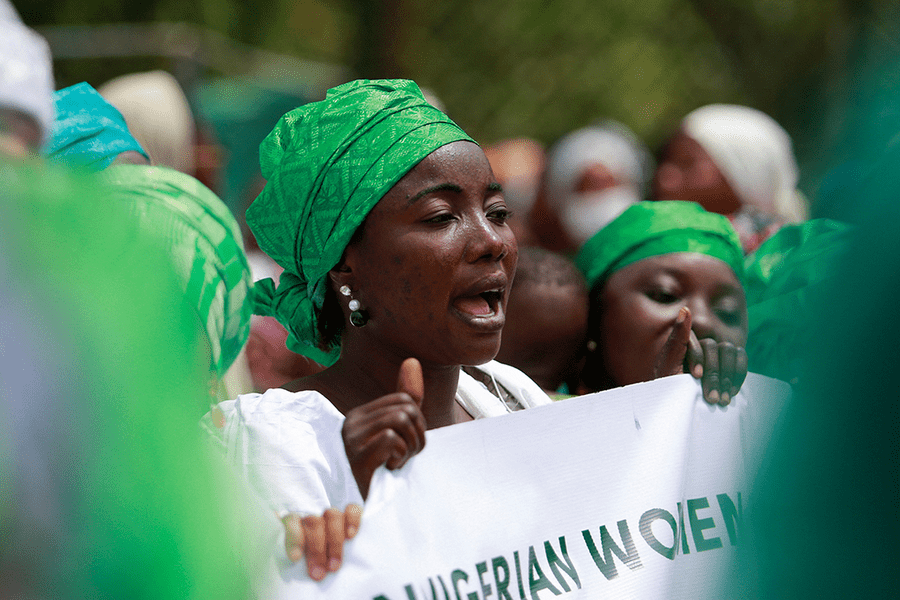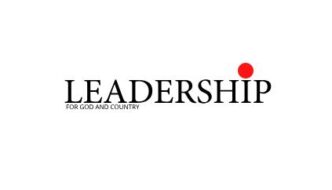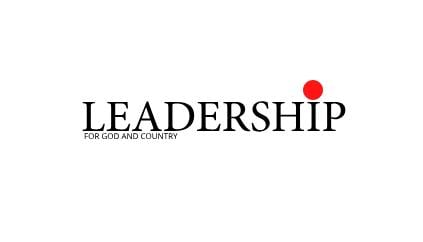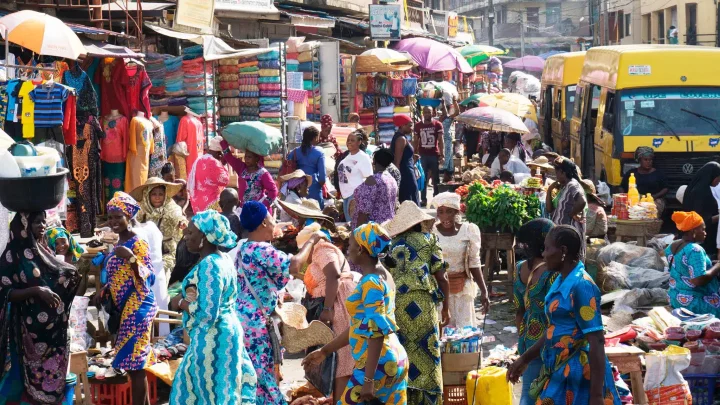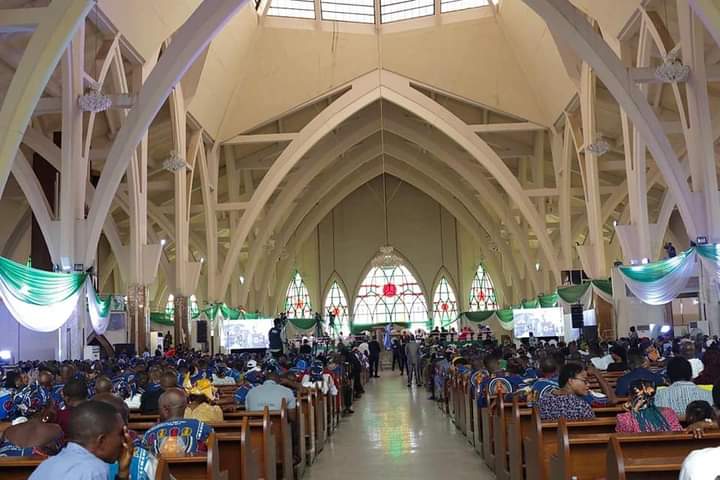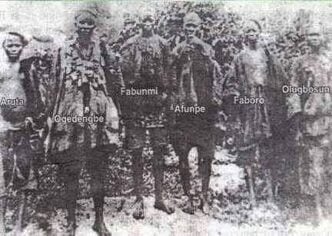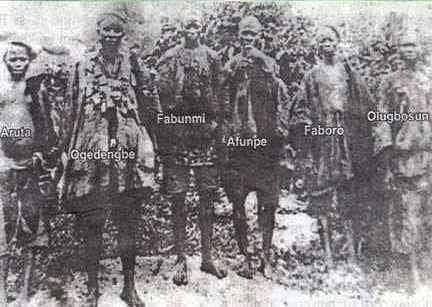When we talk of inequality, some people would argue, “it starts at birth”. “We were born with different (unequal) measures of biological endowments”, “fingers are not equal”, and things like that are the usual lines of argument by those who subscribe to its purported inevitability, and irreversibility. Others who subscribe to the principle of equity, would say, “we’re equal before the Almighty God who created us”, and even “before the law”, (according A. V Dicey, in his theory of the Rule of Law). We argue, either for, or against inequality, and quote relevant portions of the scriptures to back up our respective views.
In a patriarchal society like Africa, especially Nigeria, between the male and female gender, there appears to be an unwritten code that, women must take the backseat in matters of statecraft, and in the boardroom of blue-chip companies. Even in family matters it is no different. The erroneous belief is that, “Za Oza Room” and the kitchen are their PPAs (Places of Primary Assignment). Baby-making, babysitting, and food-cooking are naturally associated with the female gender on the home front. And outside the home, it must either be at the antenatal and post-natal wards in the hospitals, or at shopping malls to get groceries for the family.
The issue is such a topical and complicated one. Even children of the same gender, born the same day, by the same parents (in case of twins, even the identical ones) still have variations in their biological (physical) endowments, and genetic make up. So inequality is that deep-rooted among humans, as it is among other biological beings. But should that be the basis for the allocation of values in the society, especially in the 21st century? The answer is “NO”.
There are some variants of inequality that are artificial — culturally induced; culturally motivated; and culturally reinforced, like socio-economic inequality, gender-determined roles within the family, among others. They’re socially constructed. And they take the form of gender, race, or caste profiling. These often reflect in how values are being allocated in the society. Values like job opportunities; political appointments; access to credit facilities; exercise of franchise (right to vote, and be voted for, in a general election); inheritance within the family, among others. And most regularly, it is skewed against the female gender. In most cases, its perpetration is not overt. They’re majorly systemic. For instance, women’s participation in politics. It has been systemically configured, such that, it requires, one having a special interest in gender equality to notice that women’s participation in the Nigerian politics has been designed to be limited, for instance. The process is heavily monetized such that women are not likely to be able to raise the required fund for the purchase of expression of interest, and nomination forms. If and when they’re able to raise it, the campaign terrain is made so rugged and intimidating that, women who still need their lives or who are so strategic to the wellbeing of their loved ones are usually self-advised to stay off. Political thugs are unleashed by those greedy and misogynistic fellows belonging to the other gender.
Advertisement
Meanwhile, when it comes to voting, available statistics indicate that women turn out more than men do. They out-number men at rally venues. That is where I blame the women folks for watching a few of their own who had braced the odds to get on the ballot paper, lose election when they could have, quietly cast their votes for every female candidate who contests in a solidarity vote. With the above-quoted statistics, it beggars belief, how women lose elections in Nigeria, when all it requires, is for fellow women (who claim to be oppressed) to cast their votes along gender line. But, why women fail to vote for women like them is another research proposition for scholars, as well as, students of Socio-political Psychology.
We witnessed, recently, in the ongoing US presidential race, how the Democrats, prevailed on the incumbent President, Joe Biden to step aside for his Vice President, Ms. Kamala Harris as he was deemed as standing no chance against a demagogue like Donald Trump. At a debate, Biden was a perfect mismatch for Trump. That was all his political party — The Democrat needed to get the memo that an electoral catastrophe was looming, should field the incumbent against his immediate predecessor. The octogenarian heeded the call; handed the baton to Kamala, and the rest, like they say, is history. We’ve seen how she’s been able to turn the campaign tide against Trump, who’s since then, been busy throwing paediatric tantrums, and giving incoherence responses to Kamala’s verbal jabs, like a punch-drunk pugilist.
The question that runs through my mind, as I observed events in the US election is that, in my country, Nigeria, would a woman ever have received that kind of vote of confidence in a man-dominated arena like politics, especially, in a contest as strategic as the presidential election? I doubt it, even though we’ve had many women politicians like Senators Florence Itta-Giwa, Ireti-Kingibe, Aisha Al-hassan (of blessed memory), Oluremi Tinubu, among others, who have at various times contested against men and either won or nearly won. It is, therefore, appalling to note that in this age, Nigeria has not yet produced a female Governor, despite the place of women in our political sociology.
Advertisement
As a mere token of appeasement, the UN-ratified 35% affirmative action, to which Nigeria is a signatory, is being implemented only in the breach. Political appointments are made without any consideration for gender-balancing. Policy and Legal Advocacy Centre (PLAC), in a reportnoted that, in the 10th National Assembly currently, “we have women occupying only 3, out of 109 seats (2.7%) in the Senate, and 17 out of 360, in the House of Representatives (4.7%), which represents 4.2% of the 469-member Assembly. Meanwhile, in the 9th National Assembly, there were 8 female Senators (7.3%) and 13 female Members of the House of Representatives (3.6%), which represents 4.5% of the entire National Assembly”.
Currently, there are only 7 women out of 45 Ministers working with President Bola Tinubu (8, if you add the suspended Betta Edu), which translates to about 17%,compared to 35% recommended by the UN. The story is not too different in the various States’ Executive Council, that I randomly selected across the six geopolitical zones. In Cross Rivers State for example, there are 7 women out of 31 commissioners – 22.5%. In Niger State, 6 women out of 30 translates to 20%. Meanwhile, Kano has 2 women out of 24 commissioners — 8% instead of 35% affirmative action. Adamawa has 4women out of 25, and that equals 16%. Lagos, the Centre of Excellence, did not fare any better. Out of 37 commissioners, only 8 are women, while 29 are men, meaning that 21.6% is what they could come up with. Enugu State manage to have 3 women out of 20 commissioners, which is a paltry 15%.
But among all the State Governors, one of them stands out. And that is Governor Abdulrahman Abdulrazaq, of Kwara State. He has sent a strong and clear signal to the rest of his colleagues, including the president, AsiwajuBola Ahmed Tinubu, who could not lead by example, despite having an ex-Senator as a wife. The Kwara State Governor has succeeded in extending the threshold of the UN’s 35% affirmative action for women, to 50%. He has 10 women out of 20 commissioners, just like he did it during his first term when he had 8 female commissioners out of 16. That translates to an unprecedented 50% in the history of cabinet composition in Nigeria. He did not only appoint them, but also made sure that, they man some of the most strategic portfolios like Health, Education, Finance, Women Affair among others.
He was also able to balance it up with youths involvement. Most of them are between their late 20s and early 40s. It is on record that the current Chairman of the Nigerian Governors Forum (NGF) appointed the youngest commissioner ever in the history of post-colonial Nigeria. He appointed in the year 2019, a 26-year-old NnazuahKolo, who was just completing her National Youths Service Scheme (NYSC) then, as the Commissioner for Youths and Sports development. And just last week, he alsoannounced the first female Vice Chancellor in the State, for the newly established Kwara State University of Education, Ilorin.
Advertisement
Under Abdulrazaq’s leadership (of the ruling All Progressives Congress — APC), in the 10th assembly, out of the 24 seats in the Kwara State House of Assembly, women got 5 tickets of the party to run in the 2023 general election, and they all won. They now occupy five, as opposed to the 8th, and 9th assembly when the number of women legislators was zero. Moreover, at least, one of the five female legislators is under 30. With all these, I think it is safe to say that, Kwara State is the Nigerian capital of gender equality.
The last month’s Local Government election also produced one woman chairperson (Moro LGA). I, therefore, won’t be surprised, if the Governor hands over to a woman come 2027, when he must have completed his second term in office. In other words, Kwara State is looking more likely than not to produce the female State Governor in Nigeria, if things continue to move the way it is, at the moment. Kwara State is better positioned than any other state in Nigeria to produce the first woman state governor in Nigeria. That is a clear-enough-signal from the Kwara State Governor — that heaven will not fall, if women are given equal opportunity as men, contrary to a view expressed sometimes ago on the floor of the House of Representatives by Honourable Gudaji Kazaore that, “if women are further empowered, they would take over everything”, because according to him, they have more than enough already.
In the struggle and advocacy for Gender Equality and Women Empowerment, especially involvement in politics, these are no doubt, encouraging gains, worthy of celebration. But, I am afraid, they’re evaporative achievements. They’re evaporative in the sense that, Governor Abdulrazaq’s successor might deviate from those lines of actions, that are without any legislative backing. The governor, therefore, needs to go a step further by liaising with the State House of Assembly, to ensure that laws are made to concretise those policies of his, and get them gazetted so that they can endure. I know, some people might want to argue that there are extant laws that take care of that, but if there is a supportive law, passed by the State House of Assembly, it would be difficult for any prospective Governor to do otherwise. I suggest this domestication because, it does not cost some lawyers in Nigeria who are Senior Advocates of Naira (SAN), anything to accept the brief, even at the risk of their professional integrity, go to court and start arguing that the particular state is not a member of the United Nations Organisation – only the federal government is, and that such a commitment is not binding on the State. After all, we practise federalism. I believe we haven’t forgotten that some people (including some governors) are arguing that the Economic and Financial Crimes Commission (EFCC) established by an act of the national assembly, being a federal government agency, has no power to probe the finances of a State Government. By and large, I think the rest of the 35 States’ Governors, and even the federal government can do with borrowing a leaf from Governor Abdulrazaq of Kwara State, to take the struggle for gender equality to an entirely new level in the country.
That said, considering the responsibilities that women bear in the society, it would sound puerile, and misogynistic for anyone to still think, and say that the roles of women start and end only in the kitchen, and “the other room”. For instance, women are minimally (if at all) involved in wars, but they are left to bear the burden of managing the aftermath of it. They are left to mourn the dead; treat the injured; nurse the terminally wounded; manage the traumatised (PTSD). We also talk of Micro-, Small and Medium-sized Enterprises (MSMEs) being to the nation’s economy, what a fuselage is to an aeroplane; it is dominated by women. This is talking about farming, petty trading, and other economic activities, without which the economy would crumble. On the home front, they’rethere for the rest of us. They look after every member of the family, ensuring we are okay. In some case, they’realso the breadwinners. Tell me what it requires to do all these, if not mental and physical strengths? Yet, some people still view them as being the weaker vessel.
Advertisement
I am not going to bore you with the list of “tigresses”, that have proven beyond doubt that women are not in any way inferior to men intellectually, and even physically. But I would like to remind you that late Professor Dora Akunyiliraised the bar of performance as a Director-General of the National Agency for Food and Drug Administration and Control (NAFDAC). Years after she died, no one has beaten her, performance wise, not even her immediate successor who is a man. Dr. Ngozi Okonjo-Iweala is still alive and breaking barriers, moving mountain in her chosen career. In the sporting arena, women are doing exceptionally well. A majority of those who won medals for Nigeria at the just concluded Paris 2024 Paralympic games are of the female category. We also saw what the Rena Wakama-tutored women national Basketball team — the D’Tigress did. The list is inexhaustible.
The “Beinjing declaration and platform for action”, has provided a framework within which advocates can channel their efforts to ensure that women across the globe are emancipated and empowered, thus engendering gender equality.
Advertisement
These gains not withstanding, there is still a lot to be done. What I am saying is that, while Nigeria is making some progress in the area of gender equality, albeit, very little, stakeholders must not rest on their oars. There are systemic injustices that still need to be addressed or corrected. For instance, a case of female police officers not being permitted to get pregnant out of wedlock. This is in accordance with regulations 126 and 127 of the Nigeria Police Act. Meanwhile, their male counterparts are not subjected to that kind of censorship. This provision was, however, earlier this year voided by the Appeal Court. Honourable Justice Olubunmi Oyewole who opined that:
“It is unthinkable that the Nigerian Police of this day and age operates on the principle that female officers need to be specially moderated and regulated while their male counterparts are free.”
Advertisement
There are many more instances of systemic injustice like this that requires advocates or stakeholders taking the initiative to correct.
There is a lot that could be done, exploring the existing government policies, as we intensify awareness campaign, to further emancipate and empower women in Nigeria. As a matter of strategy, advocates and relevant stakeholders can also scrutinise government policies, to see how they can extract maximum benefits for women empowerment in Nigeria. Recently, “the presidential fiscal policy and tax reforms committee” announced a proposal to exempt small-scale businesses, whose annual turnover is not more than ₦50 million from being taxed, as part of the mitigating responses to the current socio-economic hardship Nigerians are currently experiencing. With the women bearing the bulk of the brunt, such a policy could be pushed by Gender Equality and Women Empowerment advocates to raise the threshold further to ₦150 million annual turnover for businesses owned and run by women. This can be done, while also pursuing rigorously, more financial inclusion for women, particularly in the rural areas, granting them enhanced access to credit facilities, and making them a part of the focal points of “Ease of Doing Business” initiatives of the governments at all levels. This could be done in liaison with the office of the Minister for Finance and the coordinating Minister of the economy, Mr. Wale Edun, as well as the commissioners for Finance, Commerce, trade and Investment in the various States of the federation.
Advertisement
Abubakar writes from Ilorin, Kwara state. He can be reached via 08051388285 or [email protected]
Views expressed by contributors are strictly personal and not of TheCable.
Add a comment

